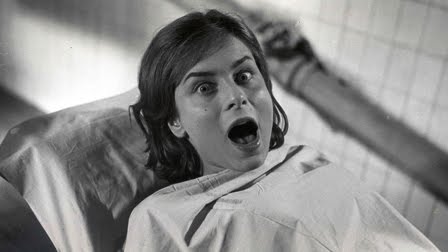- Also Known As:
- Eyes Without a Face
- Year:
- 1960
- Countries:
- France
- Italy
- Predominant Genre:
- Horror
- Director:
- Georges Franju
- Best Performances:
- None
- Premiss:
- A brilliant surgeon kidnaps young women. He removes their faces and tries to graft them onto the head on his beloved daughter, whose face has been entirely spoiled in a car crash.
- Themes:
- Guilt
- White culture
- Similar (in Plot, Theme or Style) to:
- Unknown
- Review Format:
- DVD
The dreamlike plot makes little sense in this poetically-gory serial-killer movie.
A demented plastic surgeon and his lover kill young women who look like his daughter in order to surgically remove their faces and give them to his daughter who was disfigured in a car crash in which he was driving. These successively fail; leading to an ever-higher death toll in the increasingly-desperate search for a skin graft that will not be rejected.
A haunting disquisition on a father’s guilt at his selfish recklessness that he ultimately fails to come-to terms with: He cries over split milk rather than face his errors honestly to avoid endeavouring not to repeat them. It is also about the masks we wear to cover our true, less than perfect selves, as well as being an attack on unethical science and the pursuit of knowledge at any price.





No comments:
Post a Comment